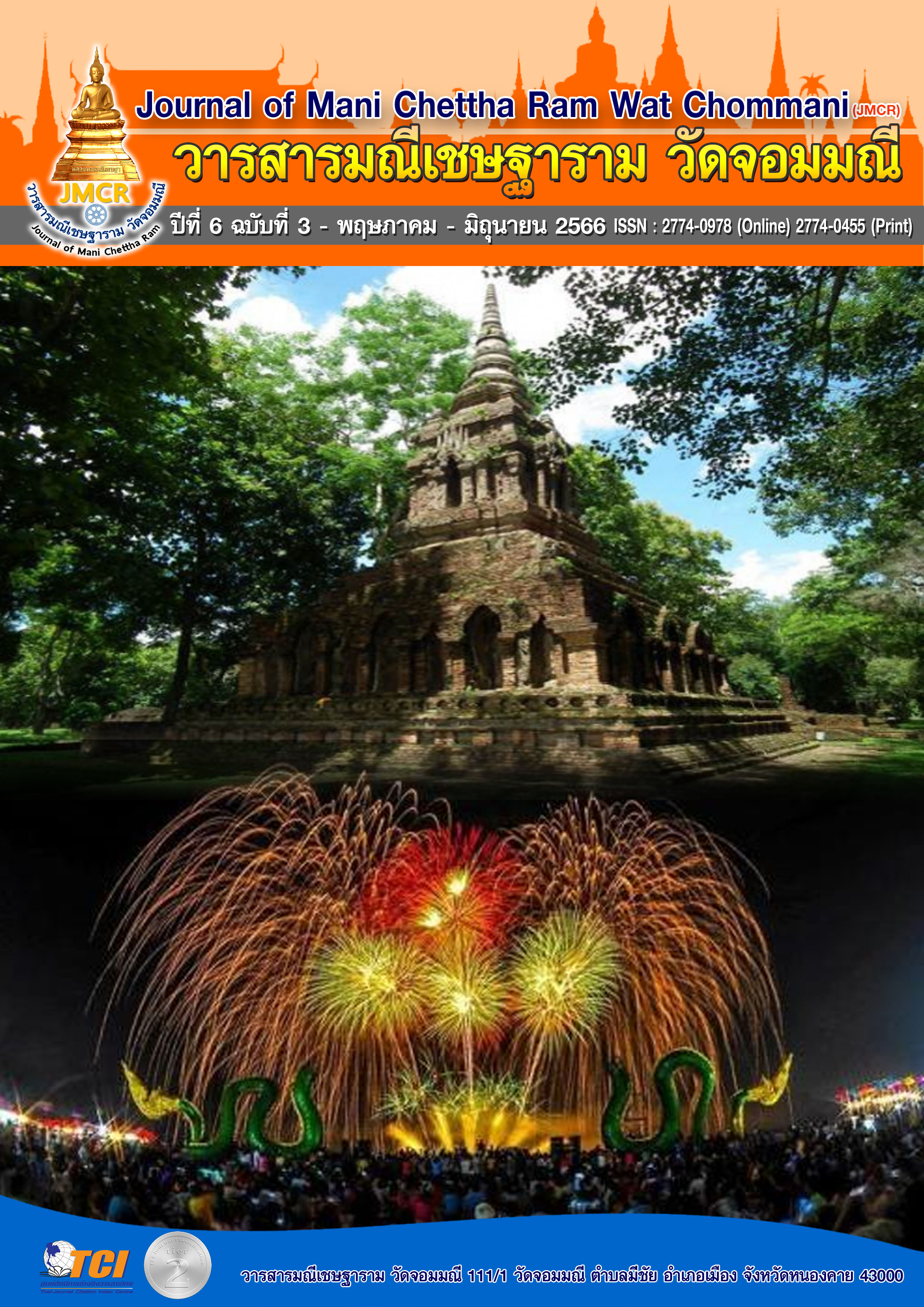PRINCIPLES OF DHARMA FOR THE HUMAN RESOURCE MANAGEMENT
Keywords:
Principles of Dharma / Human Resource ManagementAbstract
This is an academic article. The purpose of this article was the principles of human resource management in various organizations according to Buddhist principles. There are many teachings of the Buddha that appear in the Tripitaka that are worth studying and applying. Human resource is an important factor for management in many organizations. Therefore, they it pays attention to taking care of employees or their subordinates to be able to work to their fullest potential.
For this reason, correct and appropriate human resource management is essential in the era of globalization, including principles in Buddhism It is very necessary in modern times as well, because it makes us to know and understand others, looking at others optimistically in working with others, dominating people is considered the most difficult thing because people have many types or comparable to the four lotuses that the Lord Buddha considered for those who deserve to be taught. Therefore, Therefore, should know the principles of human resource management. which Buddhism has clearly defined, prejudice, act of aiding or supporting, and sublime states of mind, things leading never to decline but only to prosperity, virtues for fraternal living and practice towards each other with the 6 directions, Buddhism has clearly defined for use in considering, amending and improving the roles of human management in the organization to keep up with the current and future changes as well.
Even though the Dharma principles have existed since era to the present for more than 2,500 years, but all principle is always up to date. It can be applied as a lifestyle tool and a guideline for management as well, because the aforementioned Dharma principles are true that can be proven called "Truth Dharma",
References
กนกพันธรน์ โลกุตรวงศ์. (2555). แนวคิดการจัดการทรัพยากรมนุษย์ในสถาบันและองค์การ. วารสาร TPA news 16 (184). 45. เรียกใช้เมื่อ 2 พฤษภาคม 2566 จาก https://www.tpa.or.th/tpanews/index.php?id=55
ประวัติ พื้นผาสุก. (2549). คุณธรรมสำหรับผู้บริหาร. เชียงใหม่: มหาวิทยาลัยราชภัฏเชียงใหม่.
พระราชวิสุทธิโมลี (ทองดี สุรเตโช). (2525). หลักธรรมสำหรับการพัฒนาสังคม. กรุงเทพมหานคร: โรงพิมพ์การศาสนา.
พระพรหมคุณาภรณ์ (ป.อ. ปยุตฺโต). (2547). ธรรมนูญชีวิต (พิมพ์ครั้งที่ 30). กรุงเทพมหานคร: สหธรรมิก.
พระธรรมโกศาจารย์ (ประยูร ธมฺมจิตโต). (2549). พุทธวิธีในการบริหาร. กรุงเทพมหานคร: โรงพิมพ์มหาจุฬาลงกรณราชวิทยาลัย.
พระธรรมราชานุวัตร. (2566). ครองตน ครองคน ครองงาน. เรียกใช้เมื่อ 2 พฤษภาคม 2566 จาก https://www.banmuang.co.th/news/activity/211593
พระมหาจรูญ อภิธมฺมจิตฺโตและคณะ .(2562). การประชุมวิชาการระดับชาติ มจร. ครั้งที่ 3 นวัตกรรมทางการปกครองและการบริหารในยุคไทยแลนด์ 4.0. เรียกใช้เมื่อ 2 พฤษภาคม 2566 จาก http://econ.mcu.ac.th/wp-content/uploads/2020/05/Article_Personal.pdf
รัตติกาล โสวะภาส. (2563). การพัฒนาองค์การให้มีศักยภาพการทำงานสูงในศตวรรษที่ 21. ใน วิทยานิพนธ์ สาขาวิชาการจัดการดุษฎีบัณฑิต. มหาวิทยาลัยนอร์ทกรุงเทพ.
สุภาคย์ อินทองคง. (2550). การใช้หลักพุทธธรรมนำการวิจัยและพัฒนาตามปรัชญาเศรษฐกิจพอเพียงสู่สุขภาพองค์รวม. สงขลา: ศูนย์เรียนรู้ชุมชนภาคใต้ (ศรช.).
Steers, RM, Ungson, G R & Mowday, R T. (1985), Managing Effective Organization: An Introduction, California, Kent Publishing Company
Bowing, R.B. and Harvey D. (2001). Human Resource Management an Experiential Approach. 2 nd Edition, Prentice Hall, Upper Saddle River.


